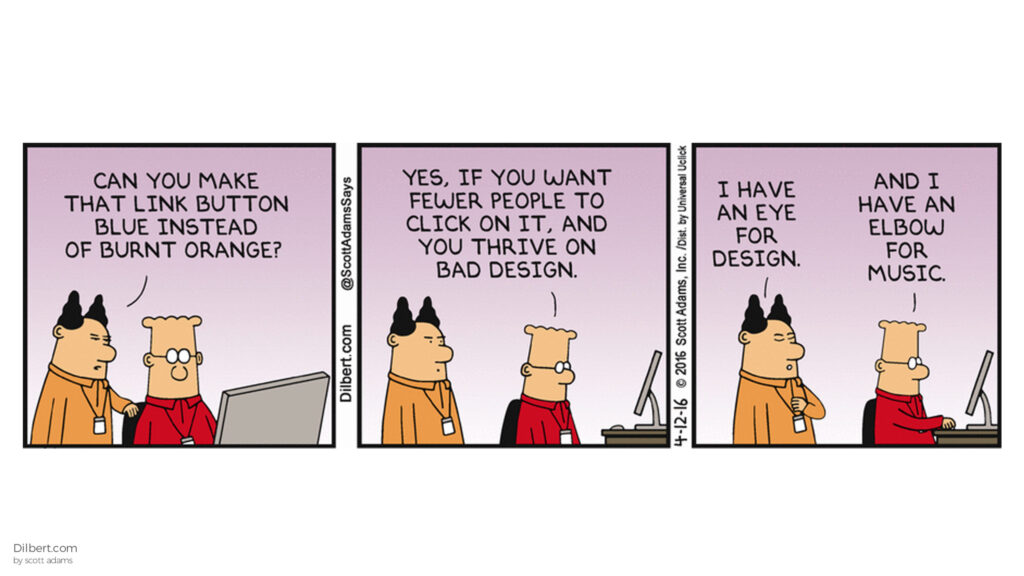Every time I look to hire for the post of UX designer, I shudder to think the applications that we have to go through. UX has become a buzzword across the industry and everyone has realized the potential of the high paying buzzword-job. So we get all sorts of applications, from graphic designers, web developers, to even legal analysts. Why is it so?
For one thing, look at how we define user experience. One of the most popular definitions of UX is, “User Experience refers to a person’s emotions and attitudes about using a particular product, system or service. It includes the practical, experiential, effective, meaningful and valuable aspects of human-computer interaction and product ownership.” In case of a layman, this definition is nothing but technical mumbo-jumbo.
While UX essentially encompasses simplifying everything for users, we still jargonize the very meaning of what we do. And that leads to everyone believing that they are suited for the role. And this is not a one-off problem. Finding the right talent for positions in UX is a global problem and works on the flip side too.
Way too many of my peers and colleagues have struggled to find the job that they have wanted irrespective of the demand for UX professionals. Organizations often misinterpret their requirements and recruit UX designers for the requirement of graphic or UI design. This is not to imply that one is superior to the other but the requirements and the availability of the talent are being severely misinterpreted. Due to this, what is happening is that UX is facing an identity crisis and falling into the trap of sensationalism as opposed to utility.

User research is arguably the biggest collateral damage in this mess. Given how most organizations, as well as individuals, mistake user experience for UI design, the design is usually based on assumptions rather than actual research or user’s journey. According to the Onward Search Digital, the number one in-demand role for 2018 is a UX designer. And still forums like Quora, are flooded with frustrated designers and recruiters who cannot get past the identity associated with their roles and their actual roles. Let us take a look at some of the most common sentiments in this regard:
“UX design is another way of saying graphic design”
“You will helplessly watch as anyone who’s once designed their aunt’s church’s Web site using Wix and MS Paint slaps your hard-earned UX label on their resumes.”
“It’s tempting to just overwhelm them with beauty”
“Employers often don’t understand that UX encompasses a range of disciplines and one person can’t/shouldn’t do it all.”
It’s not just a whine, it is a popular frustration for a reason; it hinders effectiveness. Every product that is designed and labeled with ‘UX’ without user research or usability testing, is adversely affecting the functionality and misrepresenting user experience in its core.
So what is user experience then?
It is just that, the experience of a user.
A “UX designer” will not hand you prototypes necessarily. The role of a UX designer is to undertake user research and conceptualize design that is the best fit for the purpose of the product to the user. They may not design the final product at all. Your UX designer will provide you with invaluable insights on your users and what suits them the best to improve the usability of your product tremendously.
With this discrepancy being called out now, we have a good chance of establishing what UX is, and what it does. The solidifying of the role of a UX designer moves the entire industry forward and grooms new talent. With that in mind, I hope I have put in my penny.









